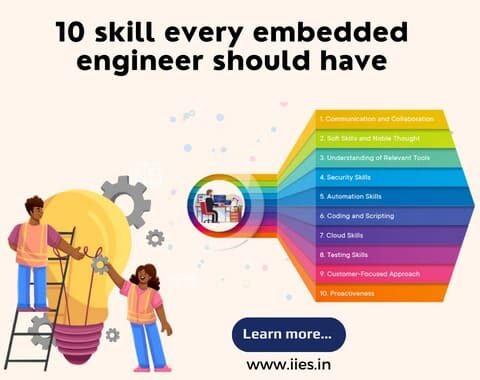Embedded engineering is a challenging and exciting field that requires a combination of technical competencies, non-technical skills, and the right attributes. Embedded engineers play a crucial role in designing, developing, and integrating the hardware and software components of embedded systems.
Technical competencies, including knowledge of hardware, programming languages, RTOS, and communication protocols, form the foundation of an embedded engineer’s work. Non-technical skills such as teamwork, time management, attention to detail, and creative problem-solving complement these technical competencies.
Embedded engineers must also possess fundamental abilities and attributes such as analytical skills, attention to detail, adaptability, and patience to excel in their roles. By continuously enhancing their skills through learning, personal projects, professional development courses, and networking, embedded engineers can stay updated with the latest trends and technologies.
In the future, embedded engineers will need to develop skills in AI and ML, security, IoT devices, and wireless communications to meet the industry’s evolving demands. By acquiring these abilities, they can continue to contribute to the development of innovative and cutting-edge embedded systems.
In conclusion, being a successful embedded engineer requires a combination of technical skills, non-technical skills, fundamental abilities, and continuous learning. With the right set of skills and attributes, embedded engineers can thrive in this ever-evolving field and contribute to the advancement of technology.
Must Read: Main Parts of Embedded Systems Hardware Architecture

